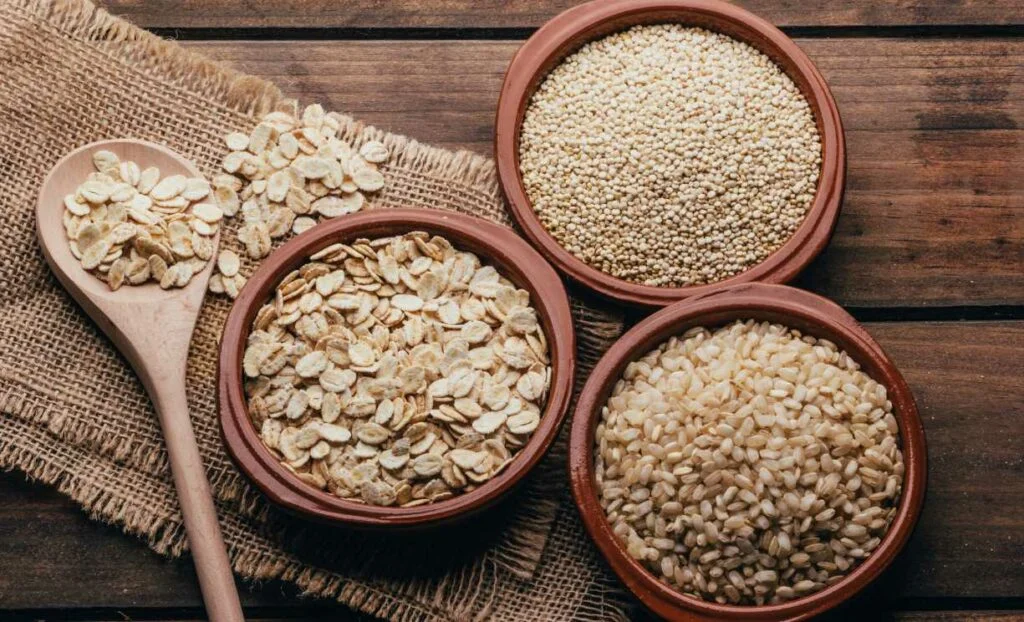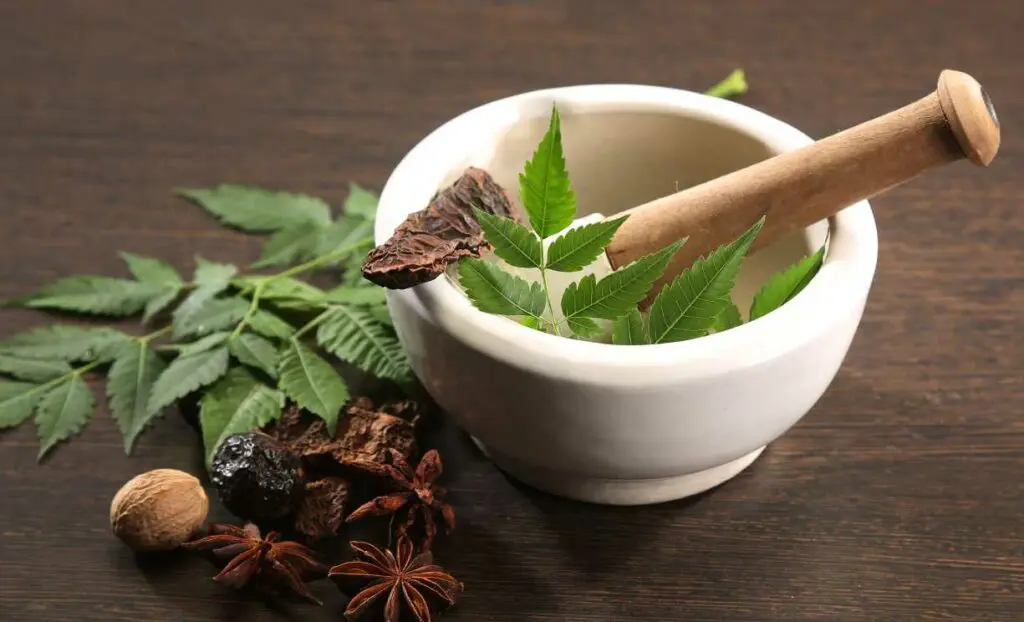Polycystic Ovary Syndrome (PCOS) is a common hormonal disorder that affects people with ovaries, impacting their reproductive and overall health. While medical interventions are available, many individuals explore natural treatments to manage PCOS symptoms and promote well-being. In this blog, we’ll delve into natural treatment for PCOS that harness the power of lifestyle, nutrition, and natural remedies to support those navigating the challenges of PCOS.
Contents
Factors That Can Affect PCOS
Polycystic Ovary Syndrome (PCOS) is a complex hormonal disorder influenced by various factors, both genetic and environmental. Understanding these factors is crucial for managing and navigating the challenges associated with PCOS. Here are some key elements that can affect PCOS:
- Genetics: Family history plays a significant role in PCOS. If close relatives, such as a mother or sister, have PCOS, there may be a higher likelihood of developing the condition.
- Insulin Resistance: Insulin resistance is a common feature of PCOS. When the body’s cells don’t respond effectively to insulin, it can lead to higher insulin levels. This, in turn, can contribute to hormonal imbalances associated with PCOS.
- Hormonal Imbalances: PCOS is characterized by elevated levels of androgens, often referred to as male hormones. This imbalance can disrupt the normal functioning of the ovaries and lead to symptoms such as irregular periods, acne, and hirsutism (excessive hair growth).
- Inflammation: Chronic inflammation may contribute to insulin resistance and exacerbate PCOS symptoms. Lifestyle factors such as a poor diet, lack of exercise, and stress can contribute to inflammation.
- Lifestyle Factors: Sedentary lifestyles and poor dietary choices can contribute to both obesity and insulin resistance, amplifying the impact of PCOS symptoms. Regular exercise and a balanced diet are crucial for managing PCOS.
- Environmental Factors: Exposure to certain environmental factors, such as endocrine-disrupting chemicals found in some plastics or pesticides, has been studied in connection with PCOS. However, more research is needed to fully understand these links.
- Stress: Chronic stress can impact hormonal balance and contribute to insulin resistance, potentially worsening PCOS symptoms. Stress management techniques, such as mindfulness and relaxation exercises, can be beneficial.
- Thyroid Disorders: Conditions affecting the thyroid, such as hypothyroidism, can coexist with PCOS and may contribute to hormonal imbalances.
Diet Changes
Polycystic Ovary Syndrome (PCOS) is a hormonal disorder that often responds positively to lifestyle modifications, particularly dietary changes.
- Embrace Whole Foods: Incorporate a variety of whole, unprocessed foods into your diet, including colorful fruits, vegetables, whole grains, and lean proteins. These nutrient-dense options provide a broad range of vitamins, minerals, and antioxidants crucial for overall health and well-being.
- Balanced Macronutrients: Strive for balance in your macronutrient intake by including complex carbohydrates (found in whole grains), lean proteins (such as poultry or legumes), and healthy fats (like avocados, nuts, and olive oil). This balance supports sustained energy levels and helps prevent energy crashes.
- Fiber-Rich Choices: Prioritize foods high in dietary fiber to aid digestion and regulate blood sugar levels. Fruits, vegetables, legumes, and whole grains are excellent sources of fiber, promoting a feeling of fullness and helping to stabilize blood sugar.
- Limit Refined Carbohydrates: Reduce your consumption of refined carbohydrates, including sugary snacks and processed foods. Refined carbs can contribute to insulin resistance, a key concern for individuals with PCOS. Opt for whole, unprocessed alternatives to support better blood sugar control.
- Choose Low-Glycemic Foods: Opt for low-glycemic foods that have a gradual impact on blood sugar levels. Whole grains, legumes, and most fruits fall into this category. Low-glycemic choices help manage insulin resistance by preventing sudden spikes and crashes in blood sugar.
- Healthy Fats: Incorporate sources of healthy fats into your diet, such as avocados, nuts, seeds, and fatty fish. Omega-3 fatty acids, found in abundance in certain fish, have anti-inflammatory properties that may benefit individuals with PCOS.
- Hydration is Key: Stay well-hydrated by drinking plenty of water throughout the day. Hydration is crucial for digestion, nutrient absorption, and temperature regulation. Water also helps flush toxins from the body, supporting overall health.
Herbal Supplements
While herbal supplements are commonly explored for managing PCOS symptoms, it’s crucial to approach them with caution and under the guidance of a healthcare professional. Here are some herbal supplements that have been studied for their potential benefits in PCOS natural treatment:
- Spearmint Tea: Spearmint tea is believed to have anti-androgenic properties, potentially helping to reduce elevated androgen levels associated with PCOS. Drinking spearmint tea in moderation may be considered, but it’s essential to consult with a healthcare provider, especially for those with existing medical conditions.
- Cinnamon: Cinnamon is known for its potential role in improving insulin sensitivity. Some studies suggest that cinnamon supplementation may help regulate menstrual cycles and improve insulin resistance in women with PCOS. However, more research is needed to confirm its effectiveness.
- Inositol: Inositol, particularly Myo-inositol, is a compound that has shown promise in improving insulin sensitivity and ovarian function in women with PCOS. It is often considered a safe supplement, but individual responses may vary, and consultation with a healthcare provider is advised.
- Licorice Root: Licorice root has anti-inflammatory properties and may contribute to hormonal balance. However, excessive or prolonged use can lead to side effects, including elevated blood pressure. It’s essential to use licorice root under supervision and for a limited duration.
- Fenugreek: Fenugreek seeds may have potential benefits for improving insulin resistance in individuals with PCOS. Including fenugreek in the diet or taking it as a supplement should be discussed with a healthcare professional.
- Vitex (Chaste Tree Berry): Vitex is often used to support hormonal balance in women. Some studies suggest that it may help regulate menstrual cycles and reduce symptoms like breast pain associated with PCOS. However, individual responses vary, and it’s advisable to consult with a healthcare provider.
Probiotics
Probiotics, the friendly bacteria that live in our gut, have shown promise in supporting natural treatment for Polycystic Ovary Syndrome (PCOS). Research suggests that these beneficial microbes may positively influence factors associated with PCOS, such as insulin sensitivity, inflammation, and hormonal balance. By fostering a healthy gut environment, probiotics could indirectly impact symptoms related to PCOS, like irregular periods and hormonal imbalances.
Before incorporating probiotics, it’s advisable to consult with a healthcare professional, to ensure personalized advice based on individual health needs. Including probiotic-rich foods like yogurt and fermented items in the diet is also a natural way to promote a balanced gut and potentially support PCOS management.
Regular Exercise 
Regular exercise is a key part of treating Polycystic Ovary Syndrome (PCOS) naturally. When you engage in physical activity regularly, it brings several benefits. It helps your body respond better to insulin, which is important for managing blood sugar levels. Exercise also supports weight management, and maintaining a healthy weight is crucial for individuals with PCOS. It can help balance hormones, improve energy levels, and lift your mood by releasing feel-good chemicals in the body.
Regular exercise may even help regulate menstrual cycles for those with irregular periods. Additionally, it has anti-inflammatory effects, which is beneficial because inflammation is often linked to PCOS. Whether it’s walking, jogging, dancing, or strength training, finding activities you enjoy and making them a consistent part of your routine can significantly contribute to managing PCOS and promoting overall well-being.
Can PCOS Be Treated Completely?
Although PCOS cannot be treated, it can be managed with these lifestyle changes. Adopting a healthy lifestyle, including a balanced diet with whole foods, regular exercise, and stress management, forms the foundation. Eating a variety of fruits, vegetables, whole grains, and lean proteins while limiting processed foods is key. Regular physical activity, even simple exercises like walking, helps regulate hormones and improve insulin sensitivity.
Stress reduction practices, such as yoga and meditation, are crucial. Adequate sleep and maintaining a healthy weight are also significant contributors. Some herbal supplements like spearmint tea and lifestyle adjustments, such as limiting exposure to environmental toxins, can further support PCOS management. Importantly, seeking guidance from healthcare professionals for a personalized approach is advisable to ensure comprehensive and effective natural treatment for PCOS.
Conclusion
In conclusion, embracing a natural treatment approach for Polycystic Ovary Syndrome (PCOS) offers a promising path towards managing its symptoms effectively. The holistic strategies discussed, including a balanced diet, regular exercise, stress management, and adequate sleep, work in synergy to address the underlying hormonal imbalances and insulin resistance associated with PCOS. While there is no cure for this condition, these natural interventions empower individuals to take charge of their health and improve their overall well-being.





